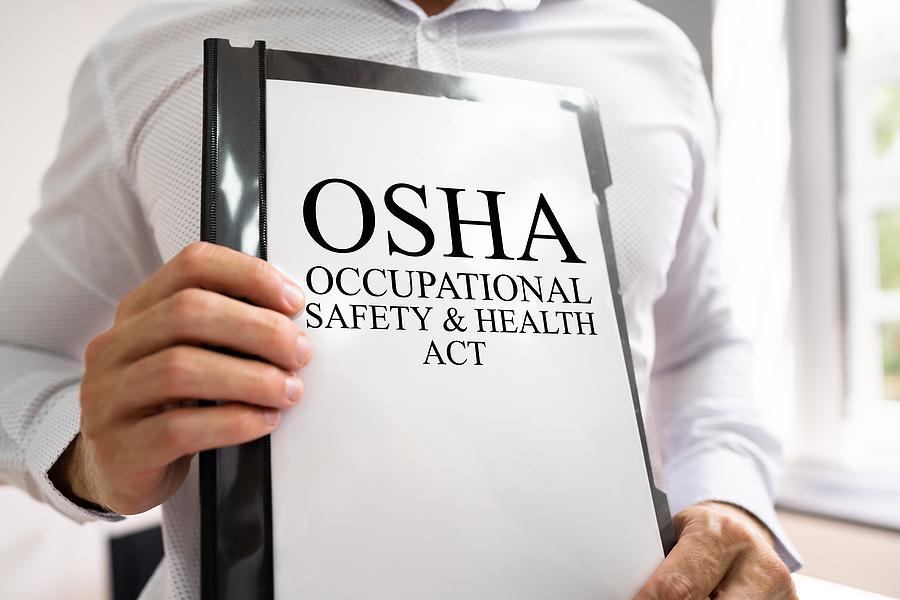OSHA Injury and Illness Recordkeeping Basics All Building Contractors Need to Know

So, you’re a building contractor using temporary workers from a staffing agency. Awesome! That flexibility can really help you take on more projects.
But when it comes to recording injuries and illnesses, it leaves you with a big question – who’s supposed to keep those OSHA logs?
The staffing agency providing the temps? Or you, the contractor who’s using them day-to-day? It’s confusing, I know!
Luckily, OSHA’s recordkeeping rules provide some help in assigning responsibilities. Let me break it down for you…
In Most Cases, You’re the Record Keeper
According to OSHA’s guidelines, the duty for recording injuries and illnesses typically lands on whoever is directly supervising the temporary workers on a daily basis.
And on a construction site, that’s almost always going to be you, the host employer contractor!
I mean, you’re the one managing the temps’ work activities, monitoring safety hazards they may encounter, and providing guidance to help them perform their duties without incident, right?
So because you’re hands-on overseeing the temps day to day, OSHA says you should also be the one maintaining logs recording any work-related injuries or illnesses affecting those workers.
Now I know what you’re thinking – what if the staffing agency has a representative visiting the work site? Doesn’t that make it their job?
Not according to OSHA! As long as you are still providing direct supervision to the temps, you remain responsible for keeping those injury and illness logs current and complete. Having the agency’s rep on site doesn’t let them off the hook.
The Staffing Agency Still Plays a Role in Safety and Health
Just because OSHA typically names you the record keeper definitely doesn’t mean the staffing agency gets to wash their hands of any safety and health responsibilities! Don’t let them slough it off.
They still have a big role to play in making sure their temporary workers are protected on the jobsite.
For one thing, they need to maintain frequent communication with both the temps themselves and with you, the host employer. This helps ensure any work-related illnesses or injuries get properly reported and recorded like they should be.
Ongoing contact also keeps the staffing agency in the loop on current safety hazards and risks present in your workplace environment. This allows them to take preventative action if needed to better protect their workers’ health.
They should also follow up routinely after any incident occurs to monitor how affected workers are recovering and to help make sure you as the recording employer have all the details you need. Details, people!
Clearly Establish Reporting Procedures for Injuries and Illnesses
Another key responsibility you both share is establishing very clear procedures for temporary workers to quickly and efficiently report any occupational injuries, illnesses, or incidents.
Every worker should be specifically instructed on how to report health issues – whether that’s to you as their on-site supervisor, to the staffing agency that hired them, or ideally to both!
They need to know their options for speaking up if a safety situation arises. Knowledge is power!
Oh, and don’t forget current and former temp employees, as well as any authorized employee representatives, have the right to access injury and illness records kept by employers like you.
So make sure to post required notices that spell out reporting procedures and employee rights! Transparency is your friend.
Maintain Open Communication Channels
Here’s another big one – maintaining open channels of communication between you and the staffing agency.
To provide temps a safe and healthful working environment, you as the host employer absolutely must inform the staffing agency right away if you become aware of a temporary worker being injured or becoming ill on the jobsite.
Don’t leave them in the dark about emerging hazards their employees may be facing! Keep ’em looped in.
Likewise, if the staffing agency catches wind of an incident involving one of their workers first, they need to notify you pronto so the situation can be addressed swiftly.
You have to record it on your OSHA logs, implement measures to prevent future occurrences, and more. So no excuses for keeping quiet!
Whenever a temp employee reports an injury, illness, or safety concern to just one of their joint employers, both you and the staffing agency should be notified quickly through established channels. Make it happen!
And don’t forget, any coordination procedures for sharing reports should be clearly outlined in the contract between your construction firm and the staffing agency. Get it in writing!
Retaliation against Employees is a Not Allowed
Please pay close attention to this – OSHA explicitly prohibits retaliation or discrimination against any employee who reports legitimate work-related injuries or illnesses. That’s huge no-no!
Temporary workers have a right to speak up if they experience health impacts or hazards on the jobsite without fear that you’ll punish them in any way. Never make them feel ostracized or that you want them to keep quiet.
If you have questions on the details of OSHA recordkeeping duties and regulations, check out their informative Recordkeeping website at www.osha.gov/recordkeeping. Good stuff in there!
You can also learn more about protecting temporary workers specifically at OSHA’s Temporary Workers webpage: www.osha.gov/tempworkers. Worth a read.
Individual States Often Have Stricter Rules
Now, while OSHA sets minimum standards for work injury and illness recordkeeping nationally, I’ve gotta warn you – several individual states actually enforce their own occupational safety and health plans with requirements equal to or going above and beyond OSHA’s.
So make sure you’re aware of any state-specific regulations that may apply uniquely to your business. Stay on top of it – you don’t want to fall out of compliance!
Check out OSHA’s handy State Plans page for a listing of states with their own standards: www.osha.gov/dcsp/osp. Do your homework!
Best Practices for Managing Temp Worker Injury Records
Want some pro tips for smoothly managing injury and illness records when using temporary workers? Here are some best practices:
- Maintain constant open communication between you and the staffing agency – collaborate!
- Provide regular safety training to temps on recognizing/reporting injuries, illnesses, and hazards
- Clearly explain the procedures for temps to report work-related health issues to either you or the agency
- Designate point people at each organization responsible for promptly sharing incident reports
- Carefully outline coordination procedures for exchanging information in staffing agency contracts
- Remember to post all required job site notices about reporting procedures and worker rights!
- Do periodic joint worksite inspections to proactively identify and control hazards
- Conduct debriefs after incidents to examine root causes and prevent any recurrences
- Ensure your on-site supervisors are fully trained on OSHA recordkeeping duties
- Provide required recordkeeping training to staff responsible for completing OSHA 300 logs
- Allow staffing agency personnel to periodically review logs involving their temp workers
- Make sure temporary workers know retaliation for reporting legitimate issues is illegal
- Encourage temps to speak up about even minor injuries to help your prevention efforts
When in doubt, communicate! That’s always Rule #1.
